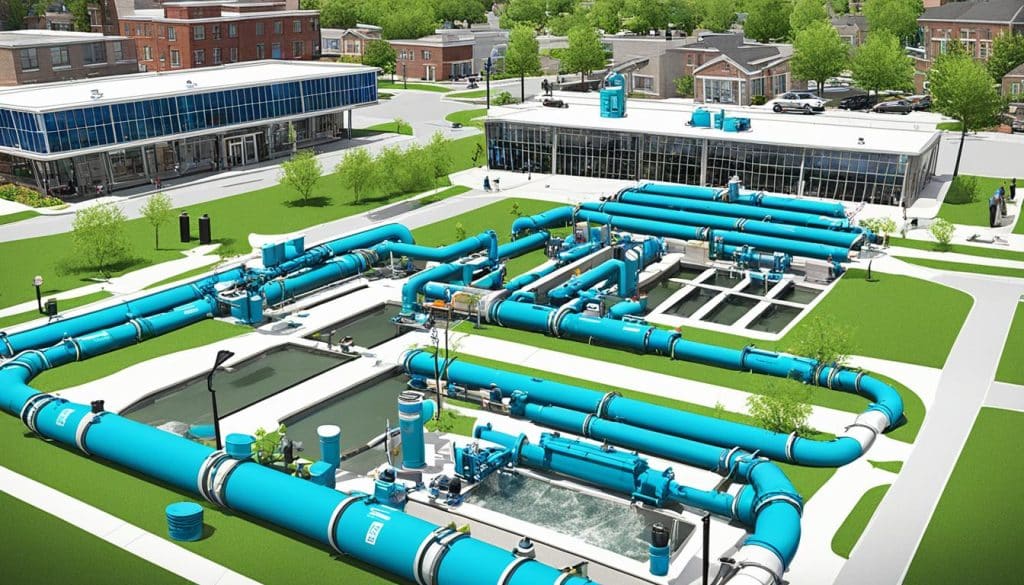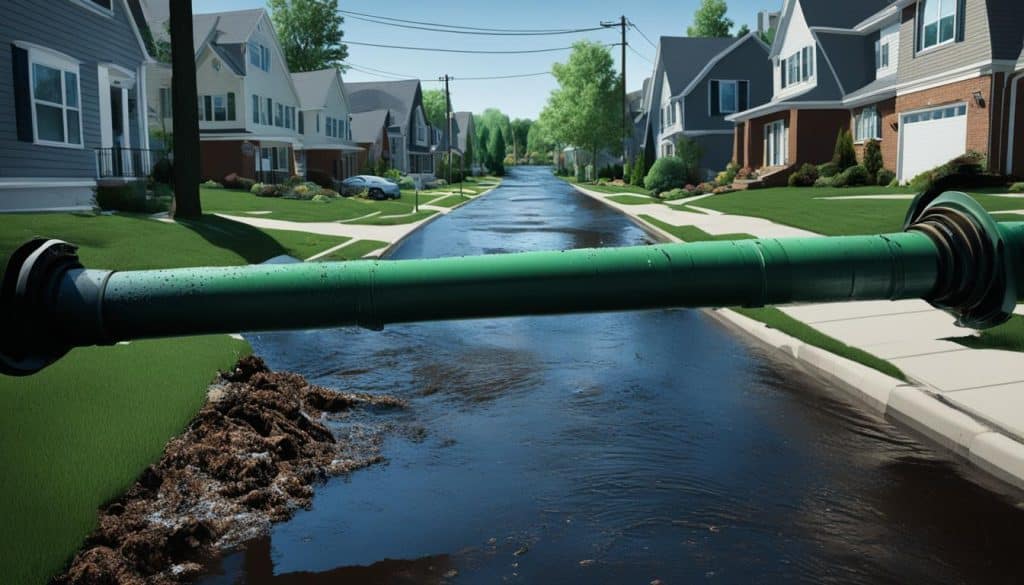In Evanston, IL, stopping sewage backups is crucial. Just picture your basement filled with sewage water. It damages a lot and cleanup is expensive. But, is there a way to stop this before it happens?
There’s good news. You can keep your place safe from sewage disaster. Installing flood control systems like clean checks and flood controls helps a lot. They stop sewage water from damaging your home. Call J Sewer & Drain Plumbing Inc. to install a flood control system to prevent Sewage Backup Evanston IL.
Key Takeaways
- Flood control systems, such as clean check installations and flood control installations, are crucial in preventing sewage backups in Evanston, IL.
- These systems are designed to protect your property against water damage caused by sewage backup.
- By implementing preventive measures, such as flood control systems, you can significantly reduce the risk of basement flooding.
- Preventing sewage backups can save you from the high costs of sewage cleanup services.
- Take action now to safeguard your property and avoid the distressing consequences of sewage backup.
Table of Contents

The Impact of Evanston’s Innovative Sewer Improvement Program
The City of Evanston saw the need to improve its sewer system to stop sewage from backing up into homes. It started a Long Range Sewer Improvement Program to fix this problem. This program has made a big difference in how the city’s sewer system works.
The city upgraded its sewer system by adding new, bigger sewers. These can handle more water from storms without causing backups. Now, the sewer system works much better and can hold more water without problems.
The program also included adding flow restrictors to some drains. These restrictors control how much water enters the sewer in heavy rain. This helps prevent flooding in people’s basements by keeping the sewer system from getting overwhelmed.
Another important step was putting in new sewers just for rainwater in some areas. These new sewers send rainwater straight to the North Shore Channel. This keeps the old sewer system from being overloaded and stops backups.
Thanks to these steps, Evanston’s sewer system works better now. The new sewers, flow restrictors, and special rainwater sewers have proven to stop flooding. They are a smart way to protect people’s homes from sewage and water damage.
Benefits of Evanston’s Sewer Improvement Program
The Evanston Sewer Improvement Program brought many good things to the city. It cut down on sewage flooding homes, which lowers repair costs. Also, it keeps sewage from spreading germs, making public health better.
The program also made Evanston’s sewers ready for heavy rains, reducing climate change risks. Overall, these changes have made Evanston’s sewer system more reliable and efficient for everyone.

The Chicago “Rainblocker” Program and Sewage Backup Evanston IL
The City of Chicago found a way to fight basement backup during heavy rains. They launched the “Rainblocker” program. This initiative was set to upgrade the city’s sewer system and stop it from overloading.
They added inlet restrictor valves to stormwater catch basins. These valves control how much water goes into the main sewer line. This helps avoid flooding basements. Thanks to this key part of the program, homes were kept safe from water damage.
Homeowners were also asked to take part in downspout disconnection. This step aimed to move clean rainwater away from the sewer system. Less water in the system meant fewer chances of basement backup. So, this effort made a big difference in reducing those incidents.
The Metropolitan Water Reclamation District (MWRD) is working to fix the sewage backup problem. They’ve started a project known as the Deep Tunnel. It’s meant to store extra rainwater and keep the sewers from getting too full.
The work of the “Rainblocker” program continues. It focuses on fixing issues in the city’s sewer system. Even though flooded streets remain a problem, the program has clearly helped cut down damage in basements. It’s a big win for the safety of the people in Chicago and their properties.






